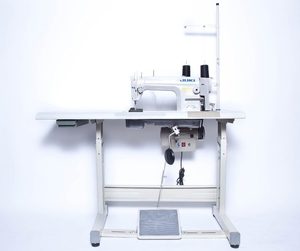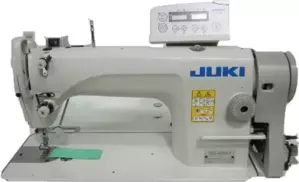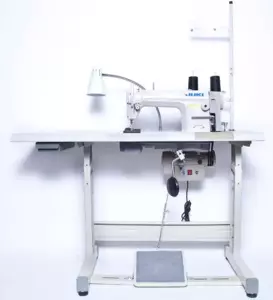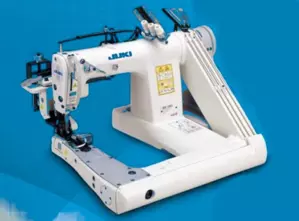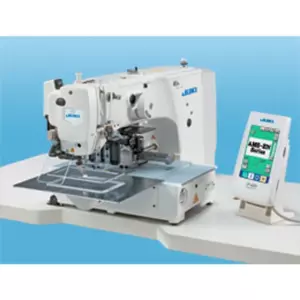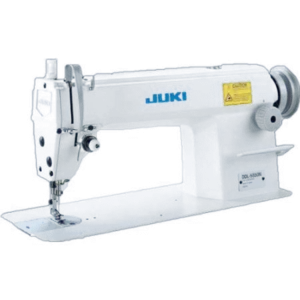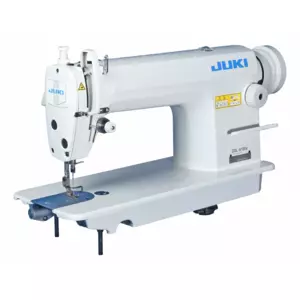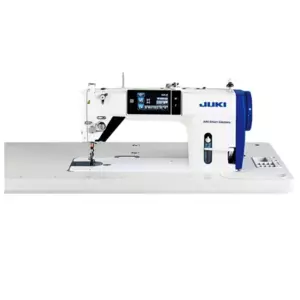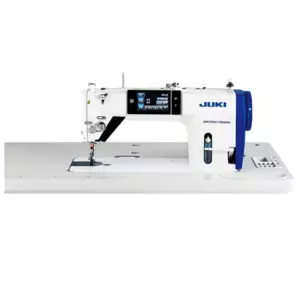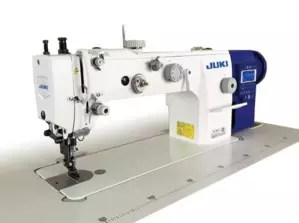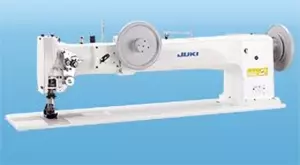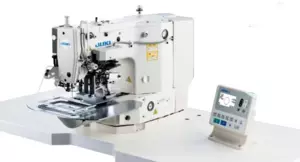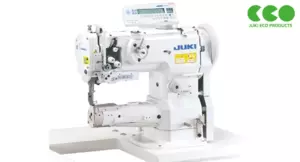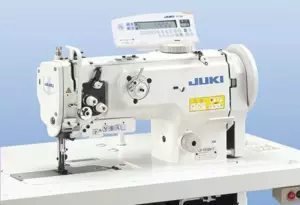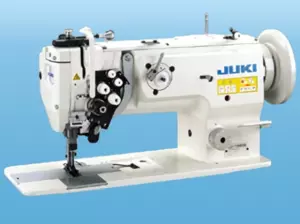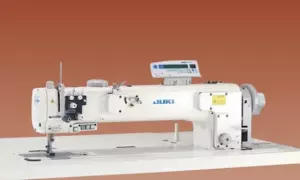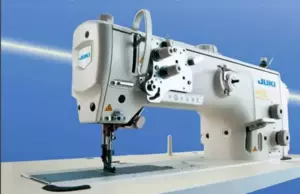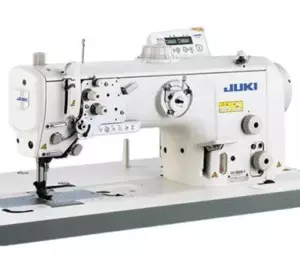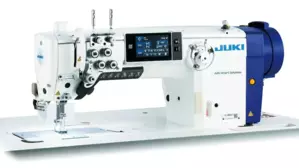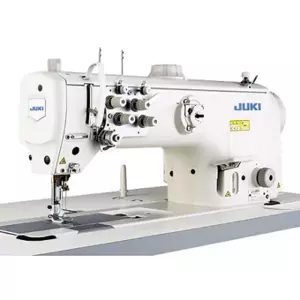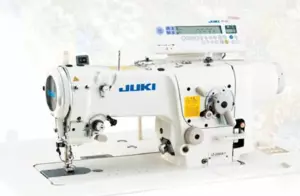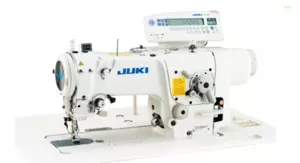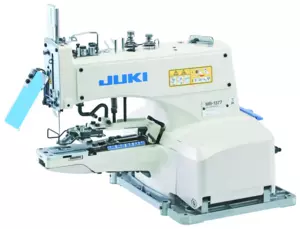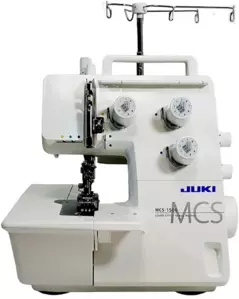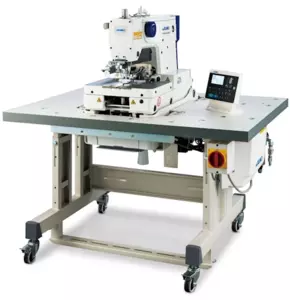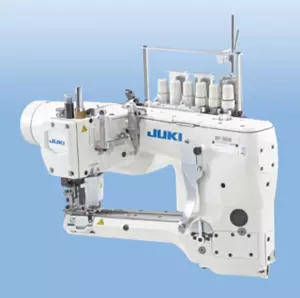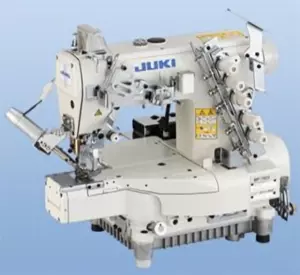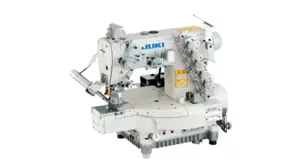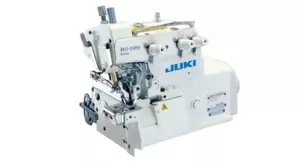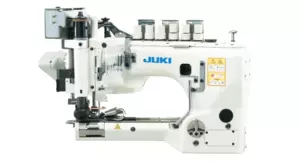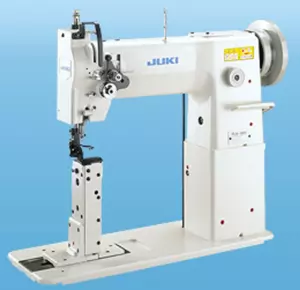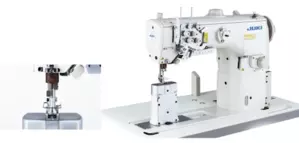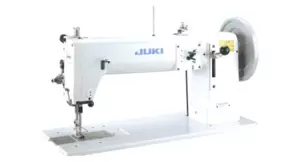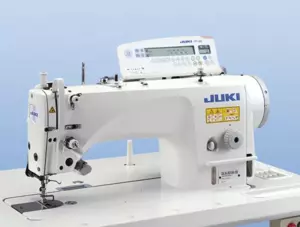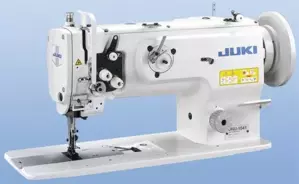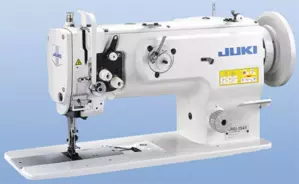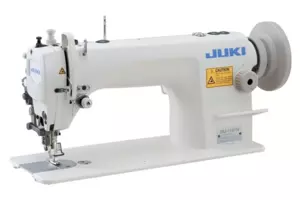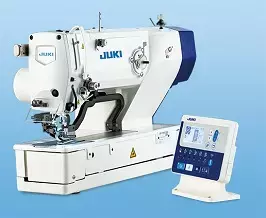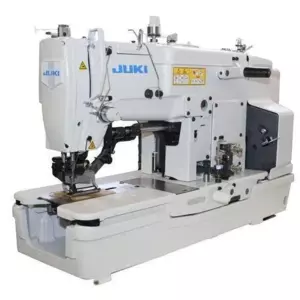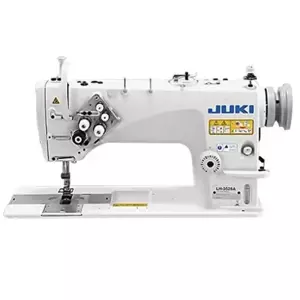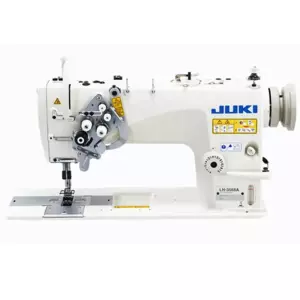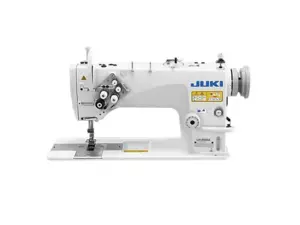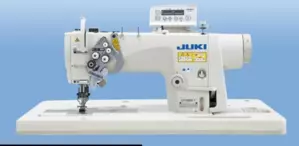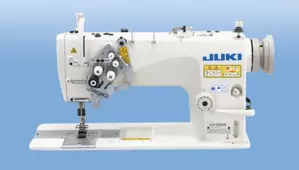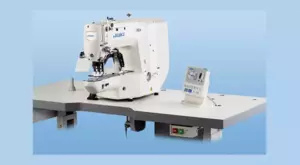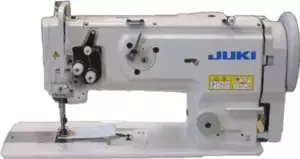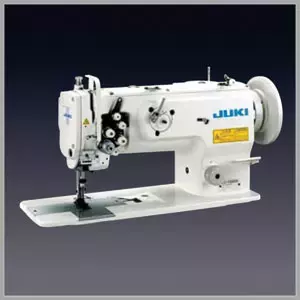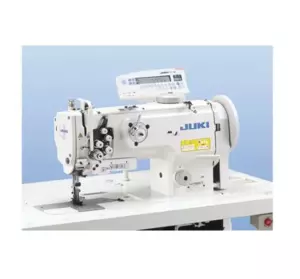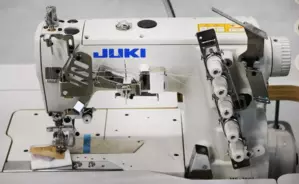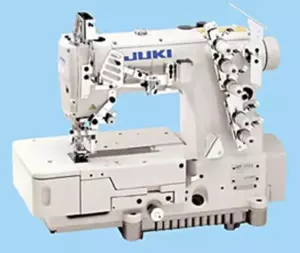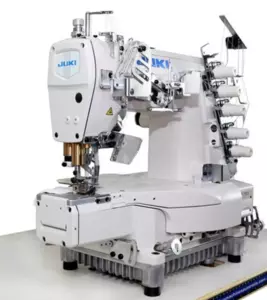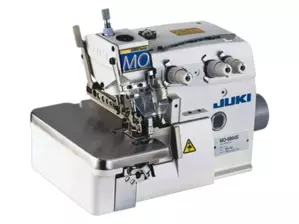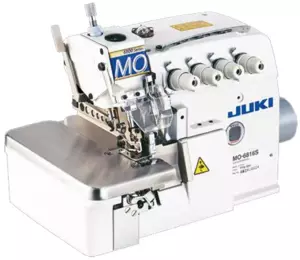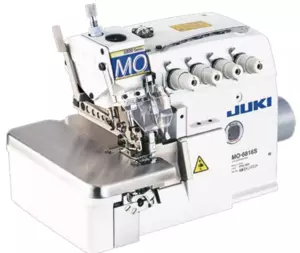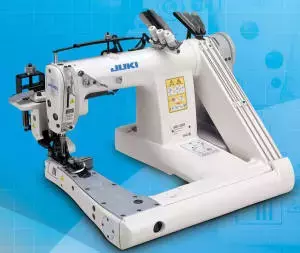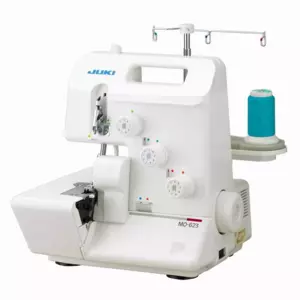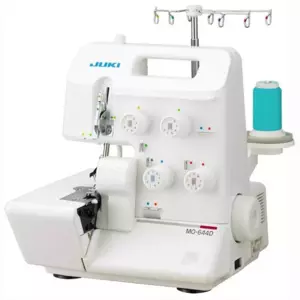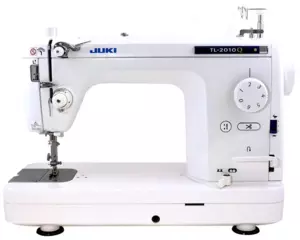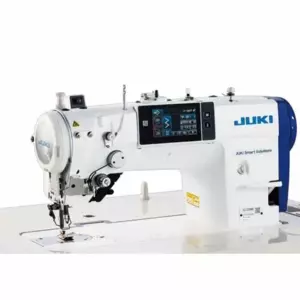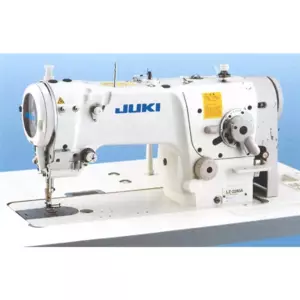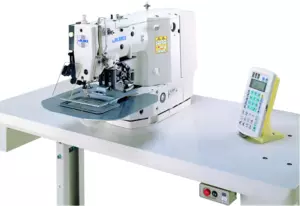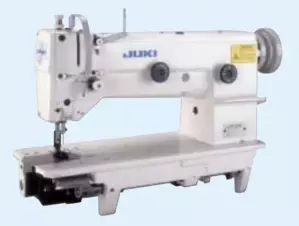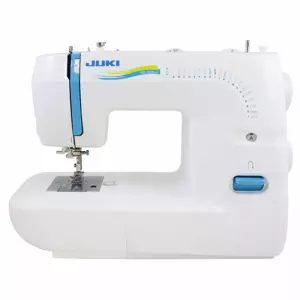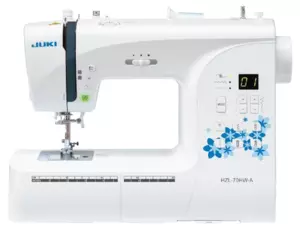JUKI DDL-8700 High-Speed Single Needle Straight Lockstitch Industrial Sewing Machine With Table and Servo Motor
Our Price:
$849.99
Market Price: $1099.99
Save: $250.00 per unit
Sold Out
JUKI DDL-8700-7 Single Needle Drop Feed Automatic Industrial Sewing Machine With Table and Servo Motor
Our Price:
$2199.99
Market Price: $2699.99
Save: $500.00 per unit
Sold Out
JUKI DDL-8700-H Heavy-Weight High-Speed Single Needle Straight Lockstitch Industrial Sewing Machine With Table and Servo Motor
Our Price:
$899.99
Market Price: $1226.00
Save: $326.01 per unit
Sold Out
JUKI MS-1261 Feed-off-the-arm Double Chainstitch Industrial Sewing Machine With Table And Servo Motor
Our Price:
$4999.99
Sold Out
JUKI AMS-210ENHL-1510 Programmable Pattern Tacker With Table and Servo Motor
Our Price:
$12999.99
Market Price: $15689.98
Save: $2689.99 per unit
Sold Out
JUKI DDL-5550N High-Speed Single Needle Lockstitch Industrial Sewing Machine With Table and Servo Motor
Our Price:
$999.99
Market Price: $1999.00
Save: $999.01 per unit
Sold Out
JUKI DDL-8100E Single Needle Lockstitch Sewing Machine With Table and Servo Motor
Our Price:
$699.99
Market Price: $999.99
Save: $300.00 per unit
Sold Out
JUKI DDL-9000C-FMS Semi-Dry Head, Direct-Drive, 1-Needle Lockstitch Industrial Sewing Machine
Our Price:
$2499.99
Market Price: $2999.99
Save: $500.00 per unit
Sold Out
JUKI DDL-9000C-SMS-NB-AK154 High-Speed Direct Drive Industrial Sewing Machine With Automatic Trimmer, Table and Servo Motor
Our Price:
$2169.00
Market Price: $2526.00
Save: $357.00 per unit
Sold Out
JUKI DU-1481-7 Single Needle Lockstitch Top and Bottom Feed Industrial Machine with Double-capacity Hook with Automatic Thread Trimmer With Table and Built-in Direct Drive Servo Motor
Our Price:
$2699.00
Market Price: $3499.99
Save: $800.99 per unit
Sold Out
JUKI LG-158 Series Long-arm Unison-feed Lockstitch Machine With Vertical-axis Large Hook With Table and Servo Motor
Our Price:
$13499.99
Sold Out
JUKI LS-1340 Series Cylinder Bed 1 Needle Lockstitch Industrial Sewing Machine with Table and Motor
Our Price:
$4999.99
Sold Out
Juki LU-1510N-7 Walking Foot Needle Feed Industrial Sewing Machine with Table and Servo Motor
Our Price:
$5699.00
Sold Out
JUKI LU-1565N 2 Needle Unison Feed Lockstitch Industrial Sewing Machine With Table and Servo Motor
Our Price:
$5774.99
Sold Out
JUKI LU-2200N-7 Series Long-arm Unison-feed Lockstitch Industrial Sewing Machine With Table and Servo Motor
Our Price:
$14999.99
Sold Out
JUKI LU-2860 2 Needle Unison Feed Walking Foot Semi-Dry Direct-Drive Lockstitch Industrial Sewing Machine With Table and Servo Motor
Our Price:
$4299.99
Market Price: $4885.00
Save: $585.01 per unit
Sold Out
JUKI LZ-2284A Series Zig Zag 3-Step Changeover Function Sewing Machine With Table, and Direct-drive Servo Motor
Our Price:
$4999.99
Sold Out
JUKI MEB-3900 Series Computer-Controlled Eyelet Buttonholing Industrial Sewing System With Table and Direct Drive Motor
Our Price:
$17999.99
Sold Out
JUKI MF-7900 U-11 Series Industrial Sewing Machine With Table and Direct Drive Motor
Our Price:
$7999.99
Sold Out
JUKI MO-6914C 4-Thread Cylinder-Bed Overlock Machine With Table and Servo Motor
Our Price:
$4499.99
Sold Out
JUKI MS-3580 Series Feed-off-the-Arm 3 Needle Double Chainstitch Industrial Sewing Machine with Table and Motor
Our Price:
$7999.99
Sold Out
JUKI PL980 Series Post-Bed Lockstitch Industrial Sewing Machine With Table And Servo Motor
Our Price:
$5199.99
Sold Out
JUKI TNU-243U 1-needle Semi-long Flat Bed Lockstitch Industrial Sewing Machine With Table and Servo Motor
Our Price:
$9094.99
Sold Out
JUKI DLN-9010A-SH High-Speed Needle Feed Lockstitch Industrial Sewing Machine With Table and Servo Motor
Our Price:
$3599.99
Sold Out
JUKI DLN-9010A-SS High-Speed Needle Feed Lockstitch Industrial Sewing Machine With Table and Servo Motor
Our Price:
$3499.99
Sold Out
JUKI DNU-1541 Single Needle Walking Foot Lockstitch Industrial Sewing Machine With Table and Servo Motor
Our Price:
$2299.99
Market Price: $3200.00
Save: $900.01 per unit
Sold Out
JUKI DNU-1541S Industrial Walking Foot Industrial Sewing Machine With Table and Servo Motor
Our Price:
$2399.99
Market Price: $3600.00
Save: $1200.01 per unit
Sold Out
JUKI DU-1181N Single Needle, Straight Stitch, Walking Foot Industrial Sewing Machine With Table and Servo Motor
Our Price:
$1349.99
Market Price: $1999.99
Save: $650.00 per unit
Sold Out
JUKI LBH-1790 Electronic Buttonhole Sewing Machine With Table And Servo Motor
Our Price:
$9999.99
Sold Out
JUKI LBH-783 1 Needle Lockstitch Buttonholing Industrial Sewing Machine With Table and Servo Motor
Our Price:
$5649.99
Sold Out
JUKI LH-3568 2 Needle Semi-Dry-Head Lockstitch Machine With Organized Split Needle Bar With Table and Servo Motor
Our Price:
$3499.99
Sold Out
JUKI LH-3578A-S Semi-Dry-Head 2-Needle, Lockstitch Industrial Sewing Machine With Table and Servo Motor
Our Price:
$3449.99
Sold Out
JUKI LK-1900-BNS Computer Controlled High Speed Bartacking Industrial Sewing Machine With Table and Servo Motor
Our Price:
$5999.99
Market Price: $6900.00
Save: $900.01 per unit
Sold Out
JUKI LU-1508NH Extra Heavy Duty Single Needle Unison Feed Lock Stitch Machine With Vertical-axis Large Hook, Table, and Servo Motor
Our Price:
$3399.99
Market Price: $3999.00
Save: $599.01 per unit
Sold Out
JUKI LU-1508NS Heavy Duty Single Needle Unison Feed Lockstitch Machine With Vertical-axis Large Hook, Table, and Servo Motor
Our Price:
$2799.99
Market Price: $3999.00
Save: $1199.01 per unit
Sold Out
JUKI LU-1560N 2 Needle Unison Feed Lockstitch Industrial Sewing Machine With Table and Servo Motor
Our Price:
$3969.99
Market Price: $4999.99
Save: $1030.00 per unit
Sold Out
JUKI LU-1560N-7 2 Needle Unison Feed Lockstitch Industrial Sewing Machine With Table and Servo Motor
Our Price:
$7999.99
Sold Out
Juki MB-1373 Single Thread Chain Button Sewing Industrial Machine With Table and Servo Motor
Our Price:
$2949.00
Sold Out
JUKI MF-7523 3 Needle Coverstitch Industrial Sewing Machine With Table and Servo Motor
Our Price:
$2599.99
Sold Out
JUKI MF-7923 3 Needle High-Speed Free-Arm Top and Bottom Coverstitch, Cylinder Bed Industrial Sewing Machine With Table and Servo Motor
Our Price:
$3799.99
Market Price: $3999.99
Save: $200.00 per unit
Sold Out
JUKI MO-6804S-0A4-150 Semi-Dry-Head High Speed Overlock Safety Switch Industrial Serger With Table and Servo Motor
Our Price:
$1699.99
Market Price: $2126.00
Save: $426.01 per unit
Sold Out
JUKI MO-6804S 3-Thread Overlock Industrial Serger With Table and Servo Motor
Our Price:
$1699.99
Market Price: $2126.00
Save: $426.01 per unit
Sold Out
JUKI MO-6814S 4-Thread Overlock Industrial Serger With Table and Servo Motor
Our Price:
$1999.99
Market Price: $2126.00
Save: $126.01 per unit
Sold Out
JUKI MO-6816S 5-Thread High-speed Overlock Safety Stitch Industrial Serger With Table and Servo Motor
Our Price:
$1999.99
Market Price: $2360.00
Save: $360.01 per unit
Sold Out
JUKI MO-6916J-FH6-700 5-Thread Top Feed Overlock Safety Stitch Industrial Serger With Table and Servo Motor
Our Price:
$5499.99
Sold Out
JUKI MO-6843S 6-Thread High-speed Overlock Safety Stitch Industrial Serger With Table and Servo Motor
Our Price:
$1899.99
Sold Out
JUKI MS-1190 Feed-Off-The-Arm Double Chain Stitch Industrial Sewing Machine With Table and Servo Motor
Our Price:
$3999.00
Sold Out
JUKI MO-623 Garnet Series Serger 2/3 Thread Overlock With Rolled Hem
Our Price:
$379.99
Market Price: $499.99
Save: $120.00 per unit
Sold Out
JUKI MO-644D Garnet Series Serger 2/3/4 Thread Overlock With Differential Feed and Rolled Hem
Our Price:
$399.99
Sold Out
JUKI TL-2010Q 1 Needle Lockstitch Mid-Arm Portable Quilting and Piecing Machine with Automatic Thread Trimmer and Speed Control
Our Price:
$999.99
Market Price: $1699.00
Save: $699.01 per unit
Sold Out
JUKI LK-1910 Computer-Controlled, High-speed Shape-Tacking Industrial Sewing Machine With Table and Servo Motor
Our Price:
$10555.00
Sold Out
Juki LZH-1290 1-Needle Lockstitch 8mm Zigzag Large Hook Industrial Sewing Machine With Table and Servo Motor
Our Price:
$4699.00
Sold Out
